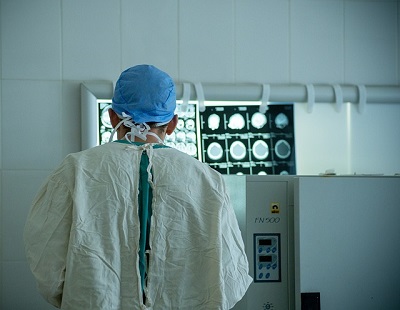Why Does Testicular Pain Affect Only One Side?
When you suddenly feel pain in one testicle while the other remains unaffected, worry and fear can instantly take over. For men experiencing this condition, feelings of anxiety, unease, and confusion intertwine, and their minds involuntarily start imagining various possibilities: Is it a severe disease? Could it affect fertility and sexual function? What does this pain indicate about changes within the body?

So, what causes pain in one testicle but not the other?
1. Orchitis
Orchitis is one of the common causes of testicular pain. It is usually caused by bacterial, viral, mycoplasma, or chlamydia infections. When one testicle becomes infected and inflamed, it results in pain, swelling, and fever in the affected testicle, while the other testicle might remain unaffected and thus painless.
Acute orchitis has a rapid onset and severe pain, often accompanied by chills, high fever, and other systemic symptoms. If acute orchitis is not promptly and effectively treated, it may turn into chronic orchitis, with persistent pain manifesting as dull or dragging pain, which can affect spermatogenesis in the testicle.
2. Epididymitis
Epididymitis is often secondary to posterior urethritis, prostatitis, and seminal vesiculitis and is commonly seen in young and middle-aged men. Pathogenic bacteria typically ascend the vas deferens to infect the epididymis.
When inflammation occurs in one side of the epididymis, the affected side of the scrotum will feel heavy and painful, with the pain radiating to the lower abdomen and the inner side of the thigh on the same side. The affected epididymis becomes swollen with significant tenderness, while the other epididymis may remain normal and painless.
3. Testicular Torsion
Testicular torsion frequently occurs in adolescents, often suddenly during sleep or after strenuous activity. The spermatic cord twisting obstructs the blood supply to the testicle, causing ischemia and hypoxia. Testicular torsion has an acute onset, with severe pain in the affected testicle, accompanied by scrotal redness and swelling, nausea, and vomiting.
Torsion not promptly corrected within 6-8 hours of onset may lead to testicular ischemic necrosis. If only one testicle is affected by torsion, the other testicle remains normal and painless.
4. Varicocele
Varicocele refers to the abnormal elongation, expansion, and tortuosity of the pampiniform plexus within the spermatic cord, most commonly seen on the left side.
When the varicocele is severe, the affected side of the scrotum will feel heavy and painful. Symptoms worsen when standing or walking and alleviate or disappear when lying down to rest. Since varicocele usually occurs on one side, it causes pain in one testicle while the other remains normal.
5. Testicular Trauma
When the testicle is impacted, squeezed, or injured by external force, it will result in pain. If only one testicle is injured, pain will occur in the affected testicle while the other remains normal. Testicular trauma can lead to severe consequences such as testicular rupture, bleeding, and hematoma, requiring prompt medical treatment.
6. Other Causes
The prostate and seminal vesicles are connected to the testicles and epididymis through the vas deferens. When conditions like prostatitis and seminal vesiculitis occur, inflammation can spread through the vas deferens to the epididymis and testicles, causing testicular pain. Sometimes, the inflammation may be confined to one side, resulting in unilateral testicular pain.
Testicular tumors may not have obvious early symptoms, but as the cancer grows, it may cause a feeling of heaviness and pain in the testicle. If the tumor occurs in only one testicle, it will cause pain on that side.
In summary, the causes of pain in one testicle but not the other are complex. If such symptoms occur, seek medical attention promptly and undergo thorough examinations, such as physical exams, scrotal ultrasound, blood tests, and urine tests, to determine the cause and take appropriate treatment measures. For pain caused by chronic orchitis, epididymitis, prostatitis, or seminal vesiculitis, natural medicine Diuretic and Anti-inflammatory Pill can effectively relieve pain symptoms with minimal side effects.
You may also be interested in:
Can Testicular Pain Be Related to Chronic Prostatitis?



